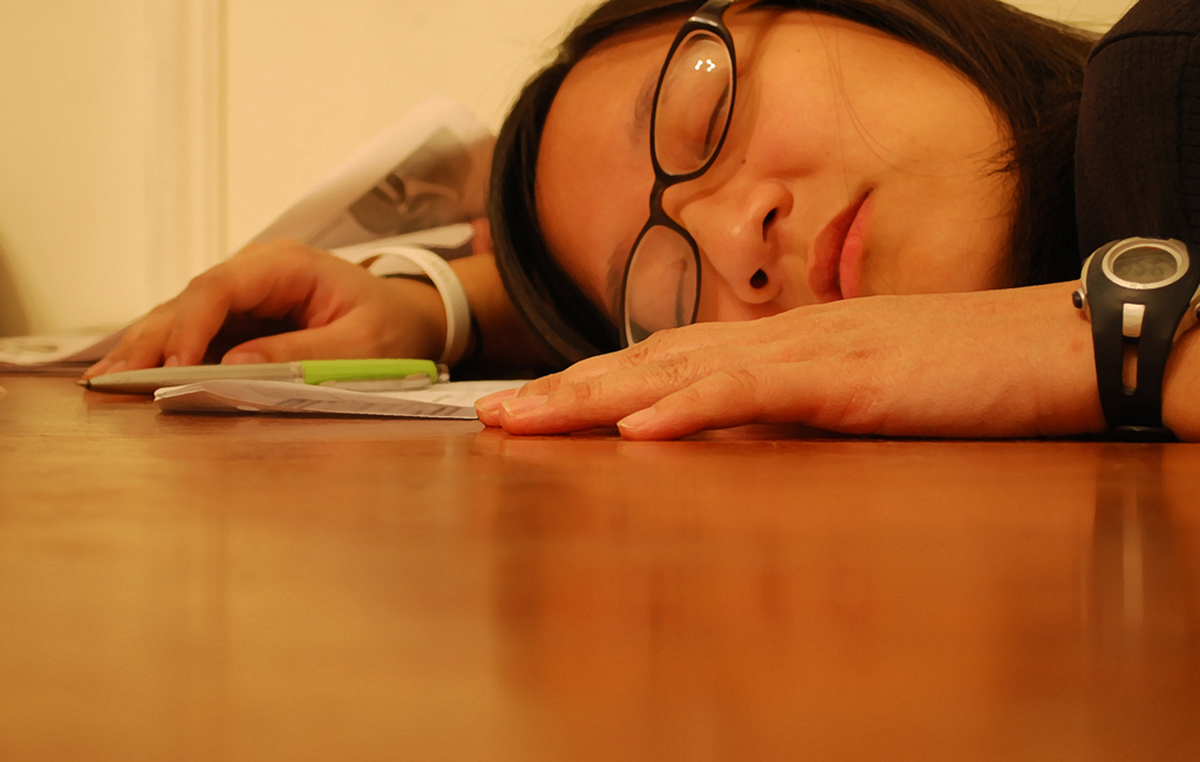We humans have a weird relationship with sleep. We sleep about a third of our lives away. Though some of us consider the need to spend that much time lying in bed seemingly doing nothing to be a shame, we all know what happens if our sleep is disordered: we feel terrible. While scientists haven't yet uncovered any one reason we sleep, it's increasingly becoming clear that sleeping plays a huge role in memory, creativity, productivity, and health.
We need enough sleep, but we also need "good-enough sleep". Feeling a little rough? You may want to take another look at the way you "do" sleep, and make some changes.

How Much Sleep Do You Really Need?
We've all heard the general recommendation to ensure that you get eight hours of shut-eye, but is that recommendation accurate for all of us? Of course not. Though we all need sleep, how much we need varies from person to person. There is, however, a pretty predictable range that shows how many hours of sleep most folks need to feel functional.
The National Sleep Foundation offers an interesting picture. While acknowledging that most adults between the ages of 18 and 64 are going to need between seven and nine hours of sleep to thrive, they add that six or 10 hours of sleep may be appropriate for some adults within that same age range. Seniors over 65 generally need less sleep. Most do best if they get between seven and eight hours, but some can get by with as little as five or six and still feel great. Other older adults still need nine hours of shut eye to function optimally.
And if you're a parent wondering when your kids should go to bed? Well, typical teens will need between eight and 10 hours, but some do better with as much as 11 hours of sleep, and others function fine with seven. Elementary-aged children's sleep needs vary a lot too: they need anywhere between seven and 12 hours of sleep.
What Happens If You Get Too Little Or Too Much Sleep?
Too little sleep, and we all know what happens in the short-term. You will feel tired and rely on coffee or energy drinks to get you through the day. You'll probably be in a foul mood and feel more stressed than you would on more sleep. Your memory and functioning are impaired, leading to sub-optimal performance at work. You'll also be more likely to have a car accident or an accident at work, something people operating heavy machinery especially need to watch out for.
In the long term, chronic sleep deprivation can have even more serious consequences. By not making healthy sleep a priority, you may be putting yourself at risk of hypertension, heart attack, heart failure and stroke. Obesity is also associated with a persistent lack of sleep, and not getting enough shut eye for a long period of time could make you depressed.
Interestingly, getting too much sleep has similar effects. In the short term, sleeping too much can leave you feeling groggy and unproductive much like sleeping too little would. In the longer term, oversleeping can place you at risk of depression, heart disease, diabetes, and even premature death.
Getting the right amount of sleep is pretty crucial, then. How much sleep you need will depend on your genetics, whether you have any medical conditions or are just ill, and on your stress levels. If you didn't catch enough sleep last night or the night before, you will also need to catch up. How do you know if you're getting the amount of sleep optimal for you?
You're probably not getting enough if:
- Getting out of bed is a struggle every morning — you don't wake up without the alarm, and you repeatedly hit that snooze button. Once you do get up, you need a lot of time (and probably a lot of coffee) to actually get going.
- Your performance is sub-optimal — you can't focus and make silly mistakes.
- You feel tired or groggy before evening time, and may even want to doze off during meetings or lunch.
- You're grumpy. A lack of sleep seriously affects your mood.
- You're under a lot of stress right now. People affected by stress often benefit from more sleep.
- You fall asleep within five minutes of getting into bed.
Improving The Quality Of Your Sleep
Unfortunately for those who love sleeping in on the weekends and spontaneous nights out during weekdays, it all starts with creating a schedule and sticking to it.

Set A Bedtime — Yes, Really
Light Exposure
What Else Can You Do?
- Playing soft music at night can help you prepare for sleep.
- You want your bed to be comfy, with a good mattress, a pillow that works for you, and nice blankets that make you feel good.
- Take a bath before you go to bed, or engage in other relaxing activities like a little yoga, some reading, or simply chatting with your partner.
- Commit to making your bed a place for sleep and sex only.
- Photo courtesy of normalityrelief via Flickr: www.flickr.com/photos/normalityrelief/3075723695
- Photo courtesy of planetchopstick via Flickr: www.flickr.com/photos/planetchopstick/497736998


Your thoughts on this